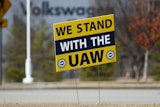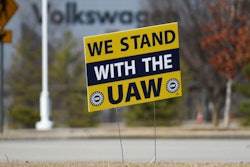Manufacturers are all-too-familiar with the labor shortage impacting the industry, and few industrial sectors are being as hard hit as welding. It’s not a glamorous job and young, skilled laborers often pursue less physically demanding work, which is both cleaner and safer.
With a global boom in industrial manufacturing underway, skilled welders are in greater demand than ever, and quality welders are in short supply. The American Welding Society, an industrial association, predicts that by 2010 demand for skilled welders may exceed the supply by about 200,000. Welders’ numbers dropped to 576,000 in 2005, a 10 percent decline since 2000, according to the Bureau of Labor Statistics. Indeed, there is an overall shortage of skilled tradespeople impacting industries worldwide as production of industrial machinery grows at record levels, and securing parts to build industrial goods has become a challenge.
From small manufacturers to Fortune 100 companies, the effort to recruit and train welders quickly has become a monumental task. Since welding cannot be easily automated, critical experience and careful judgment is required where robotic solutions are simply not a viable option.
The average age of welders continues to ascend past the middle fifties; as these experienced welders contemplate retirement, welding schools and plant floor training programs cannot create replacements fast enough to meet the demand. The result is a much higher wage for welders, an average increase of 17 percent since 2000, according to the BLS. Small manufacturers suffer most from the welder shortage, as trained skilled workers swap jobs to higher paying competition.
ResourceMFG, a manufacturing support organization, and Welder Testing Inc., have formed a partnership to help manufacturing companies get the skilled employees they need, including welders. The partnership was developed to offer job-specific training to welders that enable the welder to upgrade his or her skills and qualify for open positions with manufacturers in the Houston area. Client specific training programs are also made available as an option for companies who need welders trained in their processes and specific welding procedures.
"This partnership combines ResourceMFG's expertise in recruiting and WTI's expertise in qualifying and training welders. This will offer manufacturers another option when it comes to hiring qualified welders," noted Drew Rathburn of ResourceMFG. Manufacturers provide a qualified weld procedure and candidates apply, interview and weld test for multiple opportunities, all in one stop. Clients do not spend their time and resources on continually testing applicants at their facility.
According to John Johnston of ResourceMFG, "Our recruiters were finding experienced welders, but they might take a weld test in a process they were not familiar with at their previous job and fail the weld test. Sending a welder to our clients that produced a failing result was not acceptable anymore. Clients and candidates were becoming frustrated by this process. We had to find a way to improve our service and offer training to good candidates that just need some skills training in order to succeed at a new job."
This model of using leading manufacturing specific placement organizations is likely to expand to a national program to meet the increasing demand for welders. Hiring the correct tradesperson with appropriate skill sets is critical to cost containment, including recruitment and training. Since many of these manufacturers have created lean initiatives, a key source of eliminating waste is in the recruiting process. Working with employee organizations with manufacturing expertise proves highly efficacious versus in-house hiring and testing efforts, which almost always prove time-consuming, frustrating, and more expensive.
General placement or recruiting operations lack the expertise and discernment required to test and decipher the highly specific requirements needed of welders and other production personnel. Since a premium is now required in compensating great welders, there must be a cost-efficiency in the recruiting process; it must be a succinct and proven methodology.
Thomas R. Cutler is the President & CEO of Fort Lauderdale, Florida-based TR Cutler, Inc., a manufacturing marketing firm. He can be contacted at [email protected].























